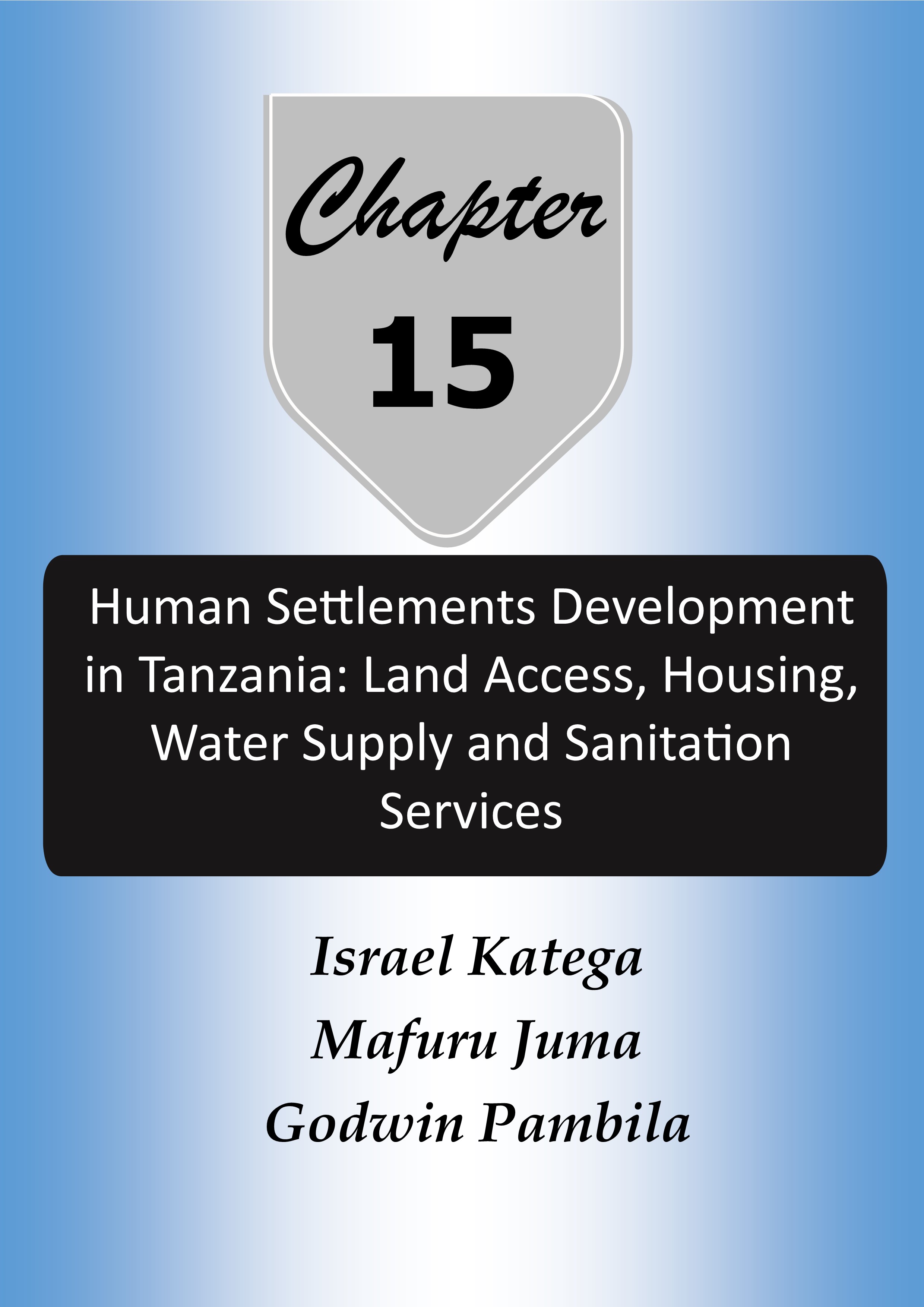Human Settlements Development in Tanzania: Land Access, Housing, Water Supply and Sanitation Services
Abstract
The general objective of this study was to assess and discuss the state and challenges existing in human settlements development in Tanzania. Specifically, the study aimed at establishing the status and challenges of access to land, housing, and water supply and sanitation services in urban and rural settlements; explore policy response measures by the government to the observed challenges and suggested on viable future policy direction in the quest to ensure informed and envisioned efforts by the Sixth Phase Government.
The study has observed that despite the government efforts to promote access to land in urban and rural settlements the issue of land access and secure tenure is still a challenge to the majority of citizens in urban and rural areas. The status of access to decent housing is still a challenge as the majority of urban dwellers live in informal settlements and in rural settlements a considerable number of households live in houses with floors and walls built of non-modern materials which are not durable therefore causing unhealthy living environment. Most of population especially in rural areas obtain drinking water from unimproved sources in both rainy and dry seasons; and although the majority of Tanzanians have access to toilet sanitation facility (94 percent), most households in rural areas still use unimproved sanitation facilities, that is, open pit-latrines and pit-latrines with not washable slabs. The study has observed that the government during the First to Fifth Phase, have made various policy responses to the challenges of land access, housing, drinking water supply and access to improved sanitation services including putting in policy a number of policies and legislations. However, the situation on community access to those basic services is still not good especially in rural areas.
On the Sixth Phase Government, the study has observed that, in the period of one year of its existence, the government has continued to act on the observed challenges with notable pace, vigour and enthusiasm and managed to achieve notable achievements in promoting access to land, housing, safe drinking water and improved sanitation. The study concludes that: First the government in collaboration with other development stakeholders should emphasise on pre-emptive urban planning and land surveying to increase land plots available for prospective land developers and thereby reduce the problem of proliferation of informal settlements. Second, the government in collaboration with the National Land Use Planning Commission (NLUPC) should improve on mechanism of funding village land use plans to reduce land conflicts. Third, the government should put in place the housing development policy to address important issues in housing development including availability of planned and serviced land, availability of planned and serviced land, housing finance, the role of individuals, real estate developers, cost of building material, price of housing units and tenant rent restriction. Fourth, for the purpose of attaining sustainability of water supply schemes in rural settlements, the government should improve the level of stakeholders participation in designing, implementing and running the schemes by training CBWSOs leaders and committee members on water schemes management principles, monitoring and accounting. Fifth, in order to promote access to improved sanitation facilities at household level the government in collaboration with local government authorities and other stakeholders subsidizing toilet building materials especially ready-made slabs for constructing improved pit-latrines and promote the importance of using improved toilet facilities through vigorous campaigns.
Collections
- Book Chapters [18]

